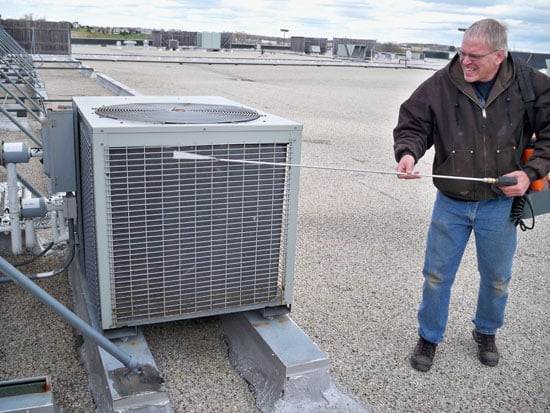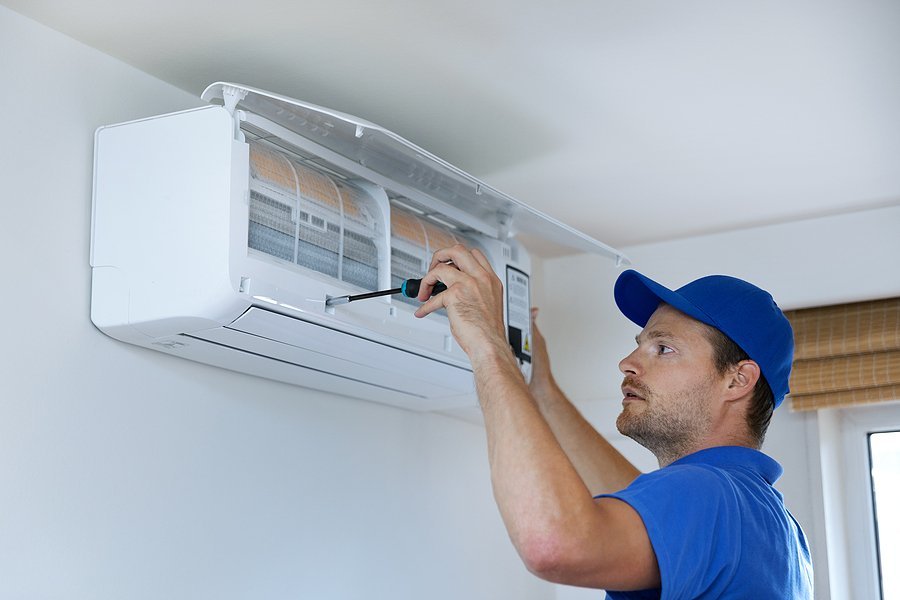
Understanding the Causes of Smelly HVAC Systems
Have you ever walked into your home or office and been greeted by an unpleasant odor emanating from your HVAC system? You’re not alone. A smelly HVAC system can be a common issue for many homeowners and business owners. The root causes can vary, but often include the accumulation of mold, mildew, dust, and other debris within the system. It’s essential to address these issues not only for the sake of comfort but also for maintaining healthy indoor air quality.
Immediate action through professional cleaning is often necessary to eliminate these odors effectively. While there are various DIY methods available, they might not be as thorough or effective as hiring a professional. By understanding the causes, you can better appreciate why a professional touch is crucial.
The Importance of Professional Cleaning
When it comes to smelly HVAC systems, a professional cleaning service can make all the difference. Professionals are equipped with specialized tools and knowledge to thoroughly clean and deodorize your system. This not only improves air quality but also enhances the efficiency and lifespan of your HVAC system.
Professional cleaning involves a comprehensive approach that goes beyond surface cleaning. It targets all components of the HVAC system, ensuring a deep clean that removes hidden dirt and debris. This thorough cleaning process is vital for preventing future odors and maintaining a fresh indoor environment.
Signs That Your HVAC System Needs Cleaning
Recognizing the signs that your HVAC system needs cleaning can save you from enduring unpleasant odors. Common indicators include musty smells, reduced airflow, visible dust on vents, and an increase in allergy symptoms among occupants. If you notice any of these signs, it’s time to consider mold removal or professional cleaning.
Benefits of Regular HVAC Maintenance
Regular maintenance and cleaning of your HVAC system offer numerous benefits. Not only does it prevent unpleasant odors, but it also enhances system efficiency and reduces energy costs. Additionally, a well-maintained system contributes to a healthier indoor environment by reducing the presence of allergens and pollutants.
DIY Tips and Professional Solutions
While professional cleaning is recommended, there are several DIY tips you can follow to maintain your HVAC system between professional services. Regularly changing air filters, keeping vents clean, and ensuring proper ventilation can help minimize odors. For more in-depth solutions, consider consulting a professional to address specific issues.
For example, if mold is a concern, it’s crucial to address it promptly. Mold can not only cause odors but also pose health risks. Learn more about effective vent solutions to keep your system mold-free.
Choosing the Right Professional Service
When selecting a professional cleaning service, consider factors such as experience, reputation, and the range of services offered. A reputable service provider will have positive reviews and offer comprehensive solutions tailored to your specific needs. Ensure they use eco-friendly products and techniques to protect your indoor environment.
Conclusion: Ensuring a Pleasant Indoor Environment
A smelly HVAC system can significantly impact the comfort and health of your indoor environment. By understanding the causes and importance of professional cleaning, you can take proactive steps to maintain fresh air in your home or office. Regular maintenance, combined with professional services, ensures a clean and efficient HVAC system that supports a healthy and comfortable living or working space.

FAQ Section
How often should I have my HVAC system professionally cleaned?
It’s generally recommended to have your HVAC system professionally cleaned every 1-3 years, depending on usage and environmental factors.
Can a smelly HVAC system affect my health?
Yes, odors from a smelly HVAC system can indicate the presence of mold, dust, or other pollutants that may negatively affect indoor air quality and health.
What are some common causes of odors in HVAC systems?
Common causes include mold, mildew, dust accumulation, and debris in the ductwork or air handler.
For additional insights on addressing musty smells in air conditioners, you can visit Hop Energy. This resource provides valuable information to help you maintain a fresh and pleasant indoor atmosphere.
This article contains affiliate links. We may earn a commission at no extra cost to you.